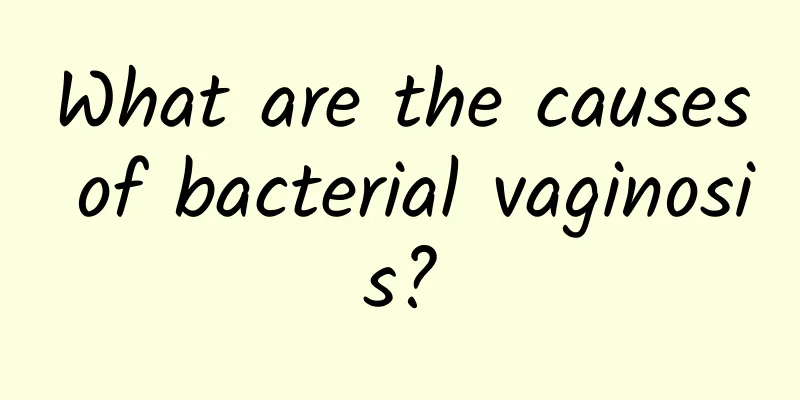Detailed explanation of the influencing factors of ovarian tumors

|
Ovarian tumors are a disease that women hate, so what are the influencing factors of ovarian cysts? These are the causes of ovarian cysts. The following experts will explain the influencing factors of ovarian tumors in detail. 1. Individual factors 1. Psychological factors: Although mental trauma and psychological imbalance cannot cause cancer, that is, they cannot initiate cancer, they can reduce the body's immunity, reduce the function of the thymus, spleen, and lymph nodes, and cause the suppressed cancer cells to proliferate actively. 2. Age: The peak incidence of benign ovarian tumors is at 30 years old, while the peak incidence of malignant ovarian tumors is at 50 years old. 3. Anatomical, tissue, and embryonic factors: Although the ovaries are small, they have great potential for tumor development because: 1) they are rich in developmental germinal epithelium, germ cells, interstitial tissue, embryonic residual tissue, etc. 2) they change cyclically throughout the year and are easily affected and disordered. 3) they are exposed to internal and external environments. 4. The main carcinogenic effect of menstruation and endogenous sex hormone estrogen is estrone. Estrogen also promotes the carcinogenicity of methylcholanthrene (MCA). 5. Pregnancy and breastfeeding: Pregnancy can reduce the incidence of ovarian cancer, but for some women, the effect is only significant after four or more births. 6. Obesity: Fat can store estrogen and slow down its normal metabolism. Excess fat can be converted into estrone and methylcholanthrene. 7. Various functions of the body. 8. Blood type: Among ovarian patients, O type accounts for 40% and A type accounts for 44%. 9. Other diseases: The incidence of ovarian cancer accompanied by thyroid disease is three times higher than that of normal people. Low iodine can enhance the function of the pituitary gland and promote the development of ovarian cancer. 2. Infection Factors 1. Viruses HIV, HCMV, and rubella virus can all cause cancer, but mumps virus and influenza virus can reduce the occurrence of ovarian cancer. 2. Other aflatoxin derivatives can cause ovarian cancer, which is also an influencing factor of ovarian cysts. 3. Lifestyle Factors 1. Diet and nutrients: Excessive fat intake increases the risk of ovarian cancer by 50%, and drinking coffee for more than 40 years can increase the risk of ovarian cancer by 3.4 times. 2. Tobacco and alcohol: Smoking ≥ 20 cigarettes a day is slightly more likely to cause ovarian cancer, which is an influencing factor of ovarian cysts. 3. Birth control measures: Oral contraceptives can protect the ovaries and significantly reduce the incidence of ovarian cancer. Fallopian tube sterilization can also greatly reduce the incidence of ovarian cancer. 4. Hygiene and Medical Factors Screening can detect ovarian tumors early. During diagnosis and treatment, benign ovarian tumors require intraoperative dissection of the healthy ovary. Removal of the uterus can reduce the risk of cancer in the retained ovary. 5. Human and Social Factors Over the past 40 years, the incidence of ovarian cancer has increased threefold. The incidence of ovarian cancer in large cities is higher than that in medium-sized cities and remote areas. 6. Environmental factors 80% are chemical, nitrosamines, coal tar, alkylating agents, chromium, etc. are carcinogenic. Low zinc and low iodine are also known to be prone to ovarian cancer, so environmental factors are also factors affecting ovarian cysts. 7. Genetic factors The RR of first-degree female relatives (mother, daughter, sister, etc.) of ovarian cancer patients suffering from ovarian cancer is 4.53. Women with a family history of ovarian cancer have a 1/6 chance of developing ovarian cancer. The seven points above are mainly the factors affecting ovarian cysts. Gynecological examinations can prevent and treat some gynecological diseases at an early stage. Many gynecological diseases have no early symptoms. Female friends must pay attention to gynecological examinations. Regardless of whether they feel abnormal or not, they should consciously and regularly go for gynecological examinations, at least once a year. Ovarian cysts http://www..com.cn/fuke/ncnn/ |
<<: Common causes of ovarian cysts
>>: Detailed explanation of the prevention and treatment methods of cervical hypertrophy
Recommend
What are the main symptoms of candidal vaginitis?
What are the symptoms of candidal vaginitis? I be...
Can grapefruit help you lose weight? High-fat diet is more effective
Hollywood actress Kylie Minogue once used the gra...
Is it okay for a fifty-year-old woman to have menopause? What is the normal age for menopause?
Women will experience menopause when they reach a...
Inspection items and hazards of Bartholinitis
Nowadays, there are more and more methods to trea...
How to eat after exercise so as not to gain weight? Nutritionist reveals 5 post-workout meals
What should you eat after exercise so as not to w...
What are the specific manifestations of the harm of cervical precancerous lesions?
Cervical precancerous lesions have become one of ...
Eat an orange before a meal to increase satiety and reduce appetite
[Core Tips]: How to improve satiety? There are tw...
What to do about hydatidiform mole
What to do if you have hydatidiform mole? Hydatid...
Blood supplement = iron supplement! The iron content of golden needle flower is higher than that of spinach
"Iron supplementation" is a necessary t...
What is the best medicine for cervical erosion?
What is cervical erosion? Cervical erosion is not...
Irregular menstruation is a common gynecological disease
What are the symptoms of irregular menstruation? ...
What is the difference between miscarriage and abortion?
Miscarriage and abortion usually involve differen...
Is bleeding from cervical erosion serious? Does mild cervical erosion require treatment?
Is cervical erosion bleeding serious? Cervical er...
What are the clinical manifestations of cervicitis?
Cervicitis is a common gynecological disease, and...
Is it easy to have beautiful legs? 10-minute leg slimming exercise
If you ask people which part of the body is the h...









